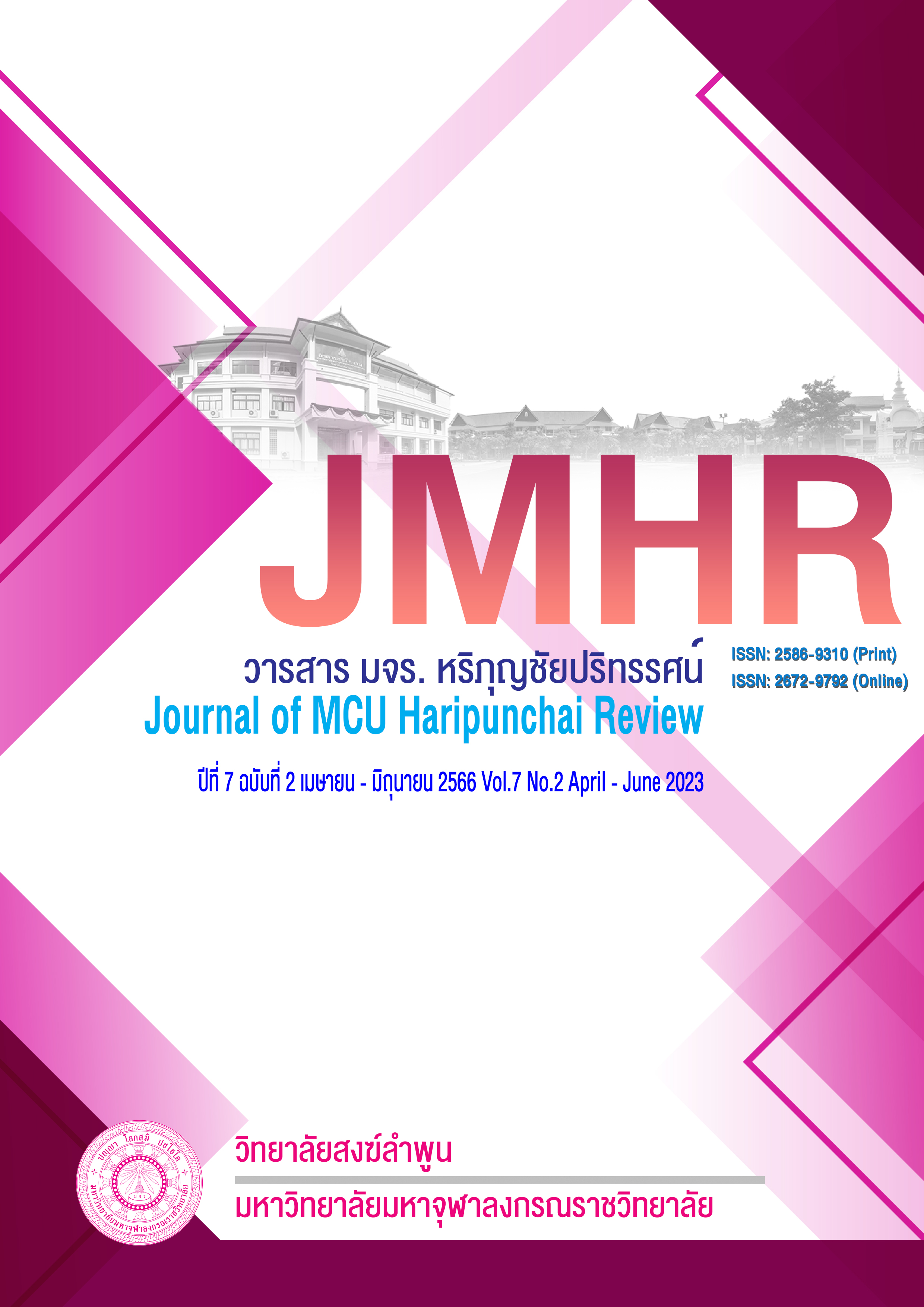The Four Foundations of Satipatthana and Resolving Conflict in Thai Society
Main Article Content
Abstract
This article aims to introduce the principles of Vipassana meditation according to the four foundations of mindfulness to develop the mind to achieve right wisdom. Knowing the Truth in Consciousness Purify the mind to reach cleanliness, brightness, peace, freedom from suffering and freedom in order to reduce conflicts in Thai society. caused by political problems management of the elite differences in the ideology of citizens that are different in their way of life including economics, politics, interests, services, beliefs, prejudices, races and languages therefore taking advantage of each other As a result, there are wide-reaching consequences, both physically, mentally and socially, lacking trust. The friendship has ended. no trust resistance has different opinions Stress and hatred in society. There is no creative initiative. in a good attitude towards each other So it was the cause of the conflict. Conflict arises from the mind being led by the current of unwholesome actions expressed through physical, verbal, and mental behaviors. able to develop the mind to live together in society peacefully as follows: the body to be healthy and complete, feeling the state of the mind, knowing the emotions, the mind, knowing the emotional state that fluctuates according to the current of craving, Dharma. It is a barrier to correct thinking. to be preconceived is to take hold, etc.
Article Details

This work is licensed under a Creative Commons Attribution-NonCommercial-NoDerivatives 4.0 International License.
References
ฐาศุกร์ จันทร์ประเสริฐ. โครงสร้างทางสังคมที่เกี่ยวข้องกับ ความรุนแรงที่เด็กและเยาวชนถูกกระทำในโรงเรียน: กรณี ศึกษาโรงเรียนแห่งหนึ่งในเขตภาคกลาง. วารสารพฤติกรรมศาสตร์. 2553. ปีที่ 17 ฉบับที่ 1 : 93 - 108.
พระธรรมปิฏก ป.อ.ปยุตฺโต. สลายความขัดแย้ง. กรุงเทพมหานคร : สหธรรมิก. 2546.
พระพรหมคุณาภรณ์ ป.อ.ปยุตฺโต. พจนานุกรมพุทธศาสตร์ ฉบับประมวลศัพท์. พิมพ์ครั้งที่ 11.กรุงเทพมหานคร : เอส.อาร์.พริ้นติ้ง แมส โปรดักส์ จำกัด. 2551.
มหาจุฬาลงกรณราชวิทยาลัย. พระไตรปิฎกภาษาไทย ฉบับมหาจุฬาลงกรณราชวิทยาลัย. กรุงเทพมหานคร : โรงพิมพ์มหาจุฬาลงกรณราชวิทยาลัย, 2539.
วันชัย วัฒนศัพท์. ความขัดแย้ง...หลักการและเครื่องมือในการแก้ปัญหา. พิมพ์ครั้งที่ 2. นนทบุรี:สถาบันพระปกเกล้า. 2547.
ศูนย์สันติวิธีและธรรมาภิบาล. การมีส่วนร่วมของสาธารณชนและการจัดการความขัดแย้ง. กรุงเทพมหานคร: สถาบันพระปกเกล้า. 2545. อัดสำเนา.
สมใจ ลักษณะ. การพัฒนาประสิทธิภาพในการทำงาน. กรงเทพมหานคร: สถาบันราชภัฎสวนสุนันทา. 2543.
เสริมศักดิ์ วิศาลาภรณ์. ความขัดแย้ง : การบริหารเพื่อการสร้างสรรค์. พิมพ์ครั้งที่ 2. กรุงเทพมหานคร : ต้นอ้อแกรมมี่. 2540.
Owens.R..G. Wrganizational Behavior in Education 4th ed. New Jersey. NJ : Prentice Hall. 1991.
Samuel P. Huntington. The Clash of Civilizations and the Remaking of World Order. New York: Simon & Schuster. 1996.


